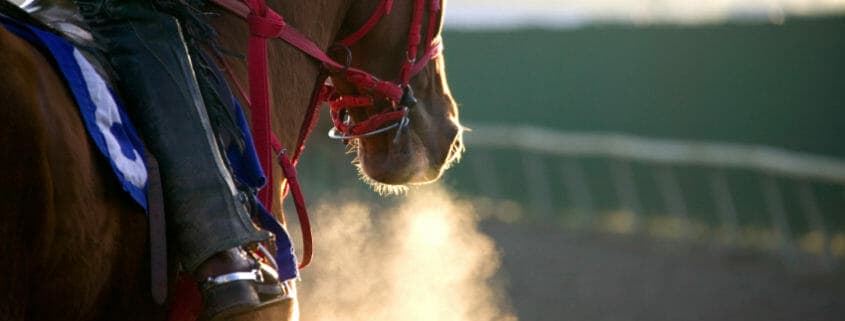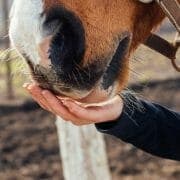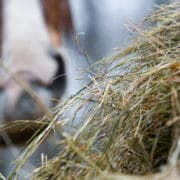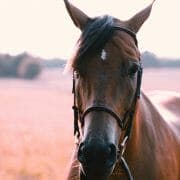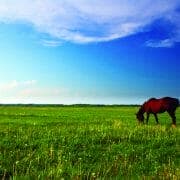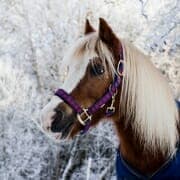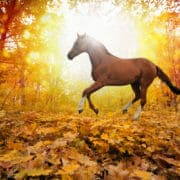Cold Weather and Calorie Requirements
Have you ever wondered about the impact of cold weather conditions on a horse’s calorie requirements? Although poorly documented, observations suggest that environmental factors play a significant role in how much energy horses need. This means that if you’ve ever asked yourself how many calories does my horse need in winter, the answer could depend on your local weather. Here are some observations to use as examples:
In Winter 2016 in the Hunter Valley, NSW, Australia, it was exceptionally wet and cold. It was a struggle to ensure weanlings grew at normal rates, despite feeding them maximum amounts of high-quality feed and providing excellent pasture. Paddocks were waterlogged, making it difficult for the weanlings to stay dry and warm. This meant they were burning calories just to maintain body temperature, rather than using them for growth.
Conversely, in 2017, with a dry winter, weanlings were thriving on less feed and lower quality pasture. Same feed, same genetics, same farms—just different weather conditions, notably dry.
During Autumn 2016 on the North Island of New Zealand, the weather was unusually warm and dry. One farm, following a consistent feed regimen, noticed cases of weanlings developing ‘contracted tendons’ and ‘going over at the knee’. This was attributed to the warmer, drier weather, which reduced the calories needed for warmth, allowing excess energy to spur rapid growth. Adjusting their feed intake prevented further cases.
In Saudi Arabia, during the summer months, broodmares and growing horses housed outdoors with no air conditioning require minimal feed due to high ambient temperatures. The heat reduces their calorie requirement to maintain body temperature, although excess body condition can become an issue.
Horses that don’t get rugged and are exposed to weather variations exemplify these effects. Last winter’s incessant rain left them with visible ribs despite ample pasture. While this year’s was cold, the dry weather has kept them well-insulated without any rib visibility, even with minimal pasture access. The presence or absence of rain significantly impacts their calorie requirements; wet conditions increase heat loss, necessitating more calories to stay warm.
As seen in the Hunter Valley, horses can endure cold, dry weather more easily. However, wet conditions strip their insulating winter coats of effectiveness, causing increased heat loss and subsequently higher calorie needs to maintain body temperature.
Understanding calorie requirements in horses is crucial, especially considering how weather influences these needs. As you know, calorie (or digestible energy) requirements vary from horse to horse and are, as just discussed, also influenced heavily by the weather. When using FeedXL, use the digestible energy requirement provided as a guide, but don’t be surprised if your horse is sitting above (needs more feed than is estimated) or below (needs less feed) than the requirement you are given due to these variables.
The only accurate way to know if your horse is getting enough calories is to use your eyes and your hands. Body condition score your horse regularly and adjust the amount of Digestible Energy in the diet up or down if your horse starts to lose or gain weight.
In conclusion, weather conditions significantly affect a horse’s calorie requirements throughout the year, and temperature and rainfall can increase or decrease how many calories your horse needs in winter. Colder, wetter weather tends to increase the calorie requirements of most horses, whereas warmer, dryer weather usually does the opposite. Monitoring body condition and adjusting feed accordingly can help maintain optimal health and performance, whether managing weight gain or loss in response to environmental changes.
Some more information about Body Condition Scoring can be found here: https://feedxl.com/1-why-body-condition-score/
Do you have a question or comment? Do you need help with feeding?
We would love to welcome you to our FeedXL Horse Nutrition Facebook Group. Ask questions and have them answered by PhD and Masters qualified equine nutritionists and spend time with like-minded horse owners. It’s free!
Click here to join the FeedXL Horse Nutrition Facebook Group

